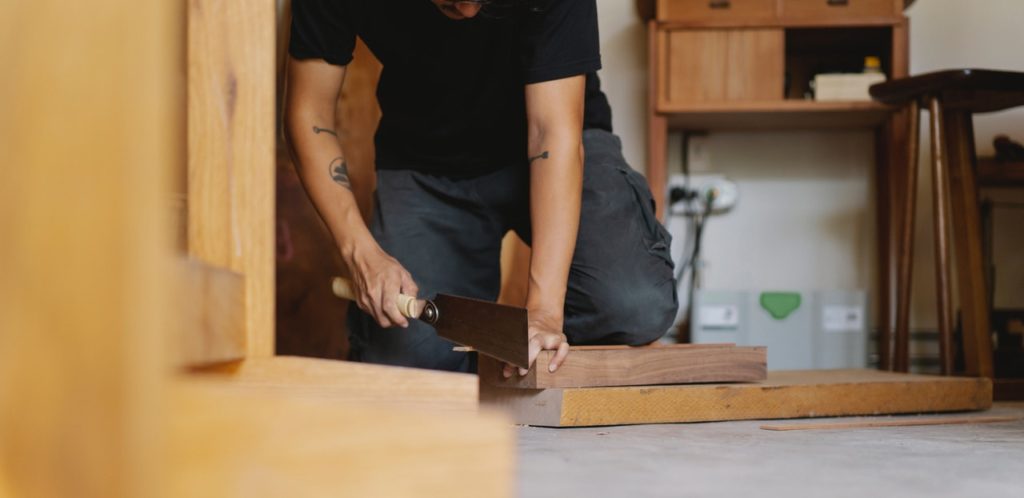More than 20 percent of college graduates are underemployed, and less than half earn over $30 an hour. However, tradies are bringing in the money, with hourly rates going as high as $70. Top earners are earning double the average salary, and the demand keeps growing for more skilled work.
Plumbing
Plumbers don’t just fix sinks. Plumbing involves different systems in your house, including gas, water, heating, and air conditioning. Plumbers need to be familiar with all of these systems, but they can focus on one or two. If you want to start a career in plumbing, you’ll need to know how to plan and install various systems, as well as how to perform maintenance, troubleshoot, and repair. Leaky pipes are the least of your concerns (but most of your calls). You’ll need to familiarize yourself with piping, valves, and fittings, as well as how to integrate them into a house’s design.
Plumbers earn close to A$80 an hour (A$160,000 a year), or even higher if you work closely with construction companies. A plumbing course can take up to ten months to a full year. Your studies will tackle fire protection, drainage, gasfitting, mechanical service, irrigation (non-agricultural), roofing (stormwater), water supply, and sanitation. Finishing the course will make you a licensed plumber, as opposed to a registered one. Registered plumbers train as apprentices under a licenced plumber and require four to five years before taking a licencing exam.
Electrical
Electricians or “sparkies” are some of the most sought-after tradesmen in Australia. They are tasked with designing and installing electrical systems, as well as performing maintenance and repair. They also need to diagnose, maintain, and repair electrical appliances and products, particularly for homes, businesses, and factories. Electricians are divided by their specialties. They can focus on residential buildings, often working with construction companies to install wiring or individual homes to fix electrical problems. They can also focus on factories and business establishments, governing the maintenance and repair of control systems, motors, and other electrical equipment.
Solar installations are also becoming quite popular in Australia, and they require specialised knowledge and training to perform. Electricians typically earn A$75 an hour (A$150,000). Most electricians will work a normal 40-hour week, but overtime can boost earnings significantly. There are no shortcuts to learning the trade. You’ll need to take a pre-apprenticeship course to familiarise yourself with the job and then go through four to five years of on-the-job training. The various states have different licensing requirements, so an electrical trade certification from a different place might not be recognised in Melbourne or Sydney.
Landscaping
Landscapers do more than make your garden look good; their portfolio also includes construction and irrigation systems. Their work can include various tasks, including planning both the practical elements (plantings) and the associated structural elements. Most landscapers will focus on the overall concept of a building or residence, leaving the physical work to professional gardeners and construction workers. They work together with the client, planning every detail, including plantings, hardscaping (pavers, walkways, etc.), and materials used. Modern irrigation systems like your sprinklers also fall under their purview.
Landscapers are particularly sought after in Queensland, where they earn an average of A$70 an hour. However, wages across the nation still average at A$67 an hour. Landscapers will focus on either construction, maintenance, and design. Construction focuses on almost any alteration on a property or development about the outside of buildings, apartments, or houses. Maintenance involves a bit of horticulture knowledge, as work usually involves maintaining normal garden spaces to entire tracts of land in parks. Design work focuses on aesthetics, and most landscape designers will work with qualified contractors to bring a client’s concept to fruition.

Carpentry
If you like working with your hands, a career as a carpenter or “chippie” might be the one for you. Carpenters can work in various fields. In construction, they build the necessary framework for the support structures that hold a building up. They also work on windows, doors, stairs, and flooring. Not a few carpenters venture into shipbuilding, where they are charged with building, maintenance, and repair of anything from a small sailboat to a large ocean liner.
Carpenters can also focus on cabinetry and other hypes of wooden furniture. Carpentry typically earns around $55-$60 per hour ($110,000-$120,000 a year). Most carpenters study under a program while training as an apprentice, taking around three years to get their licences.
The work of a tradie isn’t glamourous, but it brings in the money. Why work for a measly A$30 an hour when you can double that by learning a trade?
